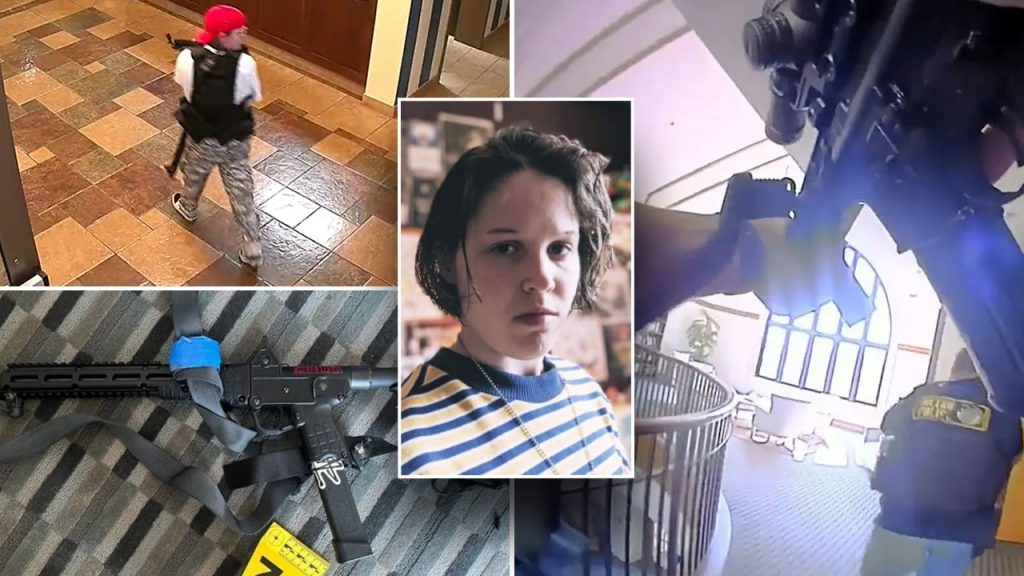The estate of a mass murderer is seeking to assert a posthumous copyright claim over the killer’s handwritten confession in connection with the Covenant Christian School massacre in Nashville. The families of the victims, who now own the estate, are arguing that they own the copyright to the killer’s manifesto and are asking the judge to block its public release. Critics argue that copyright protection must be established in federal court and that the public has the right to access these documents.
Audrey Elizabeth Hale, a 28-year-old transgender artist who identified as a male named Aiden, carried out the mass shooting at the Christian elementary school. The attack claimed the lives of three adults and three children, and Hale warned a friend before the shooting that they would hear about her on the news after she died. Police recovered a manifesto and hand-drawn maps in Hale’s car after the shooting but have refused to release them, citing potential harm to an ongoing investigation.
Despite multiple lawsuits seeking to force the government to release the manifesto, authorities continue to deny public records requests. The plaintiffs argue that since Hale was the only suspect and died at the scene, there is no pending investigation that would be compromised by making the document public. Critics accuse the government of delaying the release of the manifesto and question the motive behind the secrecy surrounding the document, which is believed to shed light on the killer’s motive and rage.
In a separate federal lawsuit brought by a local newspaper, a judge ordered the FBI to file the manifesto under seal for review to determine if the government has a valid legal argument to keep the contents confidential. Portions of the document believed to have been leaked in November have raised questions about the government’s continued delays in releasing the full extent of Hale’s writings. Access to information about the killer’s motivation and thoughts is crucial for understanding and potentially preventing future acts of violence.
The issue of copyright ownership over a mass murderer’s confession is now being contested in Nashville’s court system, with the families of the victims arguing that they own the copyright to Audrey Elizabeth Hale’s manifesto. The families are seeking to prevent the public release of the document, citing their ownership of the estate as the basis for the copyright claim. Critics of the decision argue that the public has the right to access this information and that the continued delays in releasing the manifestos are unnecessarily prolonging the agony of the victims’ families.
The ongoing lawsuits raise important questions about access to information and the balance between privacy concerns and public interest. While the families of the victims may have a legitimate claim to the killer’s estate and manifesto, the need for transparency and understanding the motivations behind mass shootings is crucial for preventing future tragedies. The government’s reluctance to release the manifesto and hand-drawn maps recovered from Hale’s car raises suspicions and calls into question the reasons behind the continued secrecy. The judge’s decision on the copyright claim and the public release of the manifesto will have significant implications for the families of the victims and the public’s right to know the truth behind the Covenant Christian School massacre.


